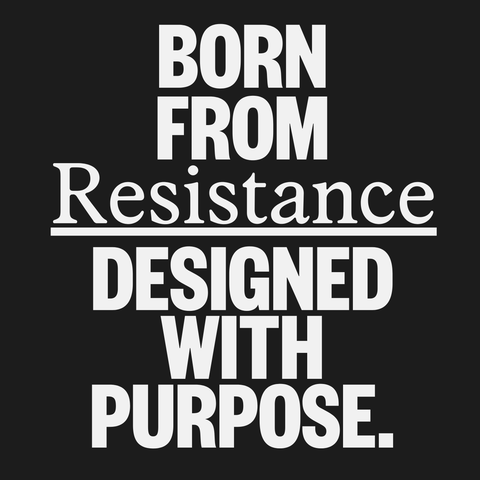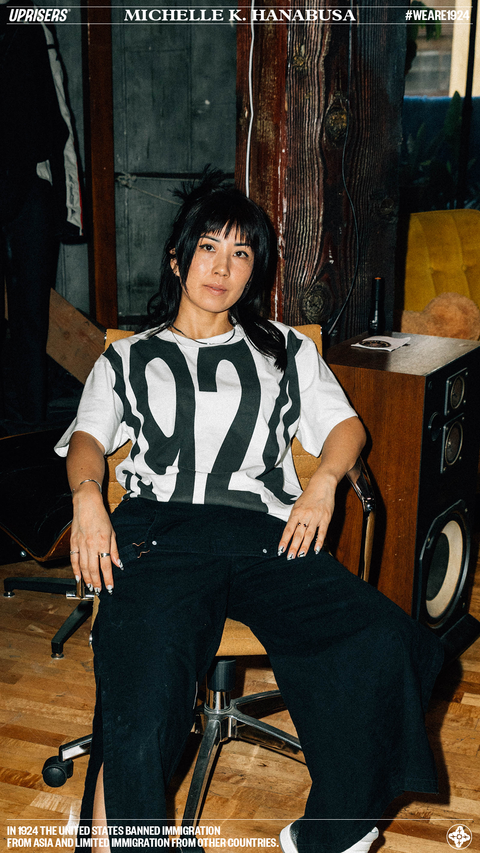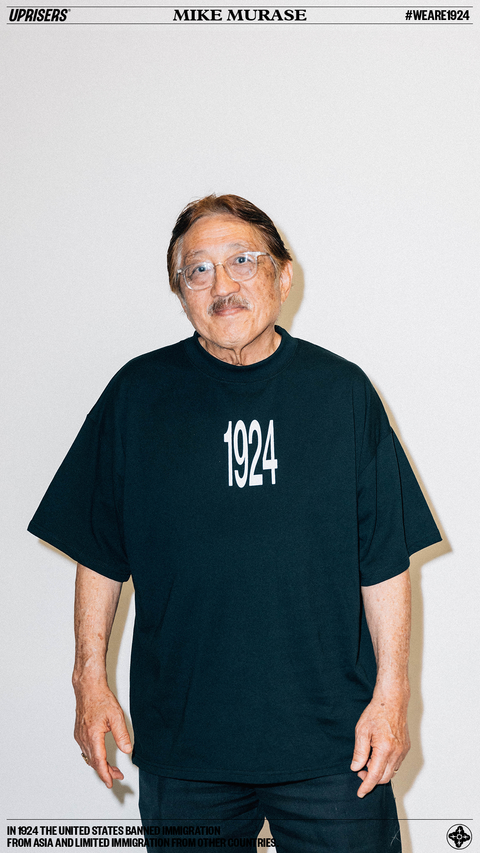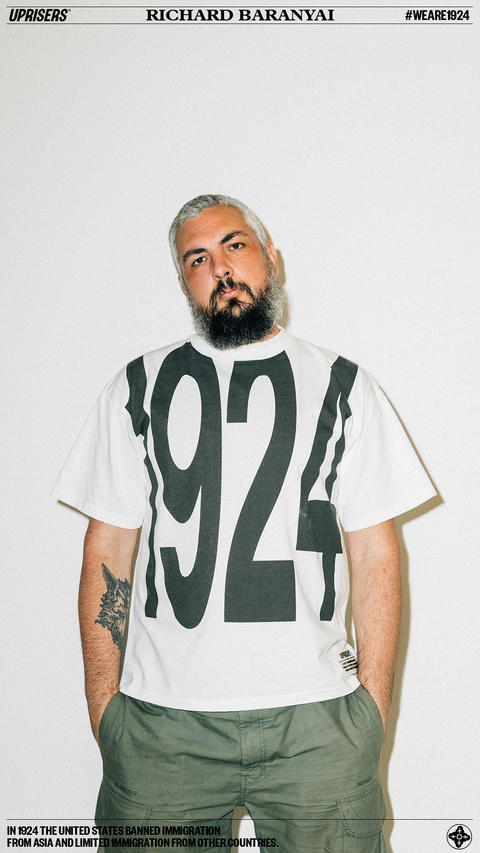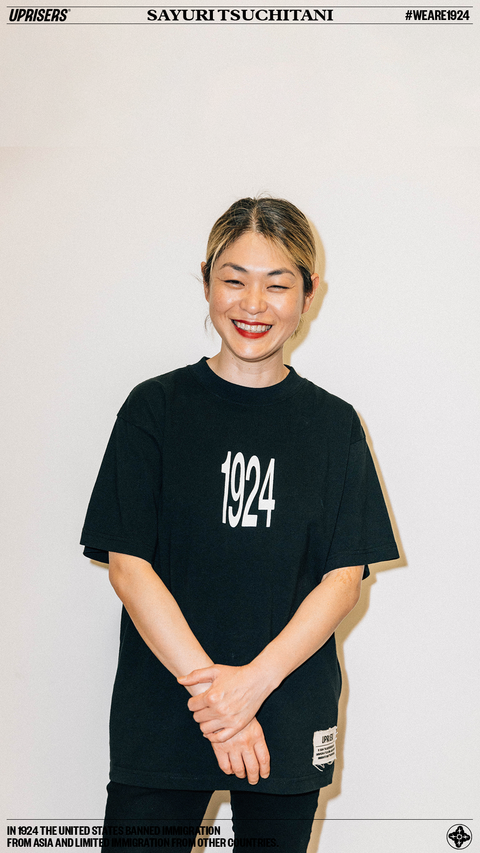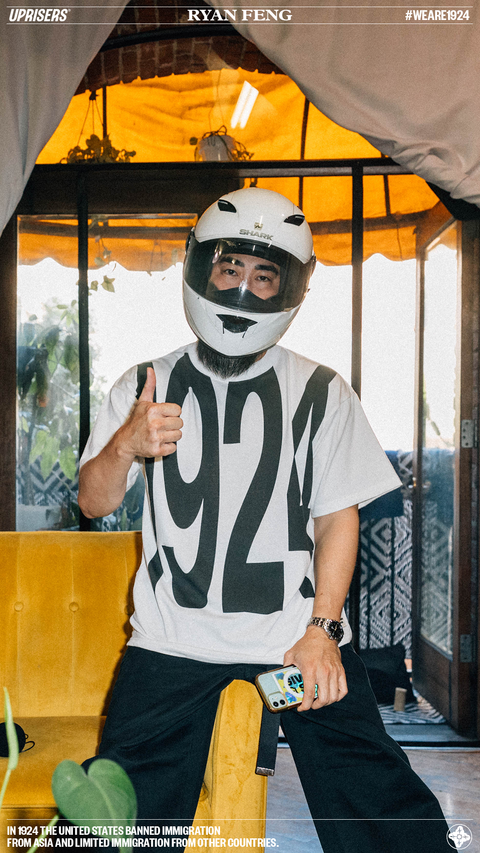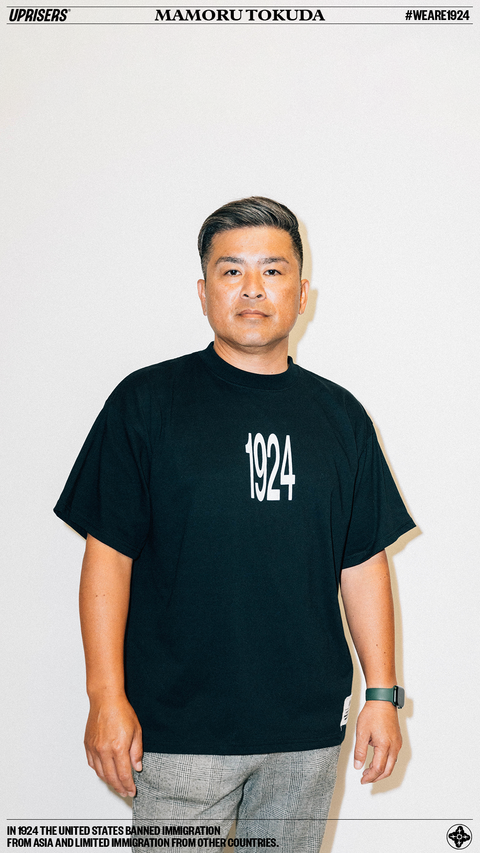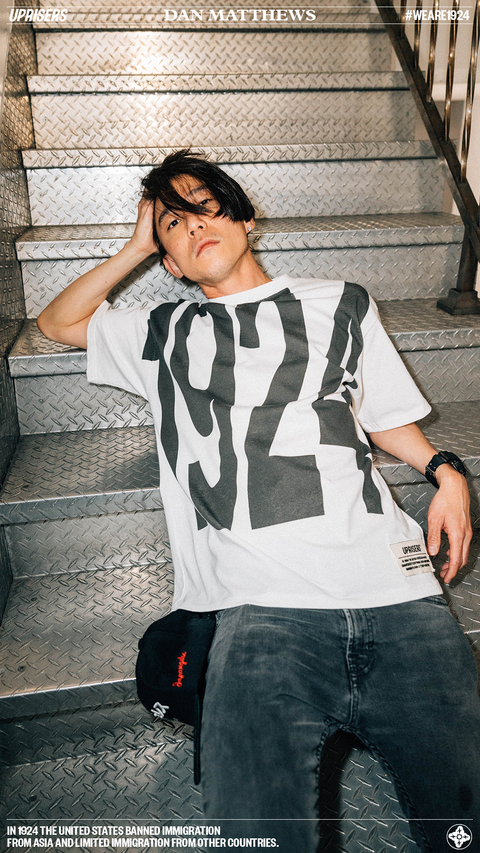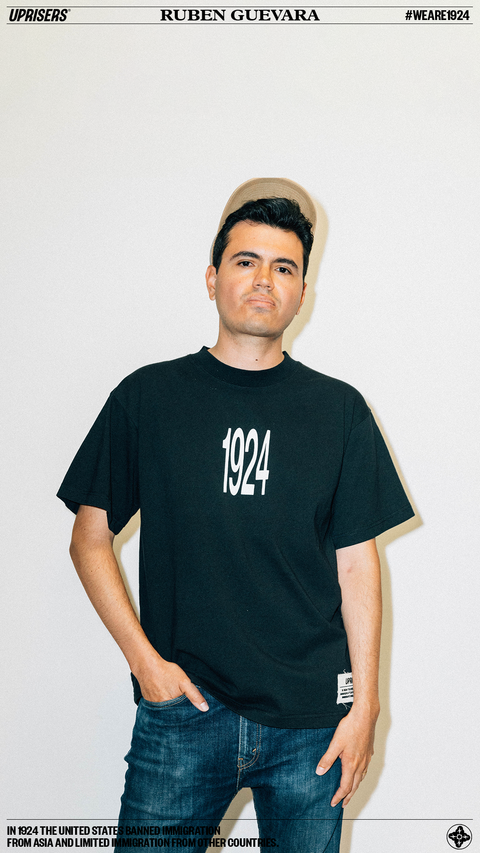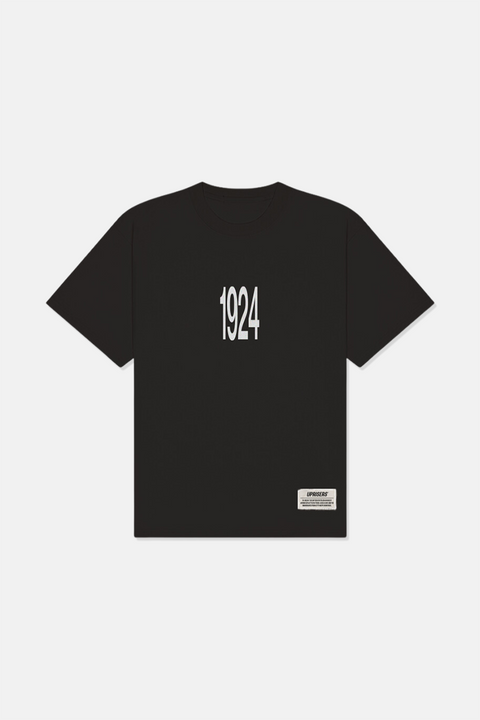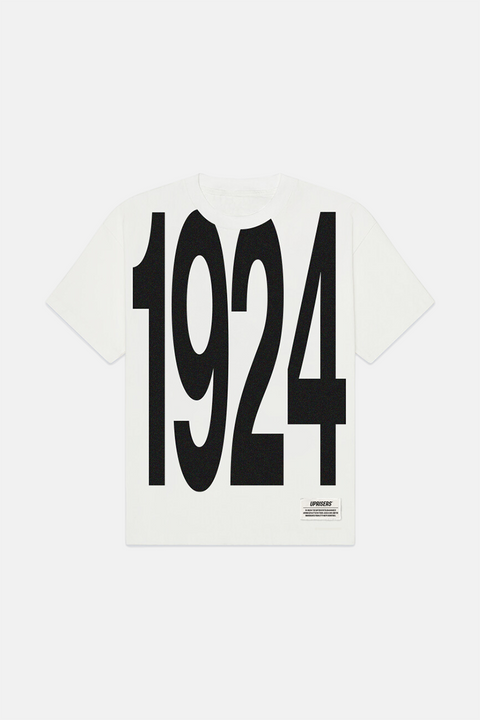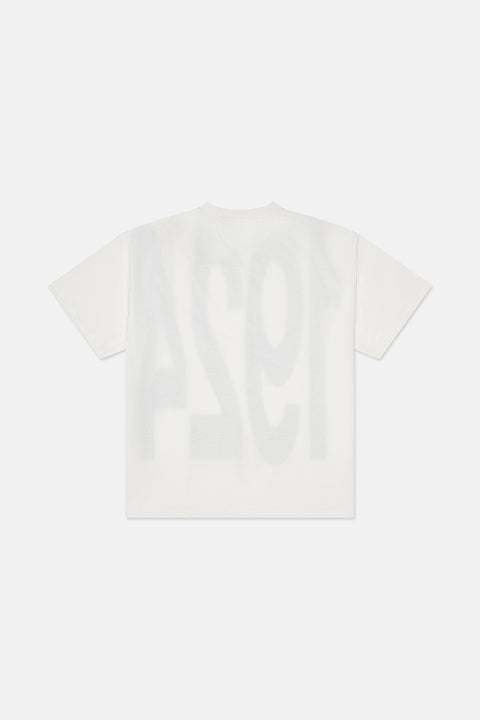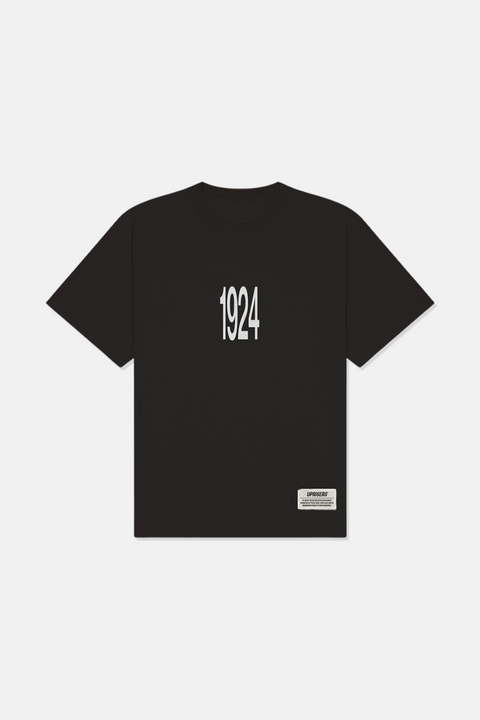
WHAT IS YOUR IMMIGRATION STORY?
My family's story is very reactive. Basically, anything big that happened in Palestine, we made a dramatic move. We had the privilege to do that because of access to citizenship to United States. And so, my grandfather had come in the 1960s and he was one of the first three people from our village which is right outside of Jerusalem called Bethlehem to come to the United States. And he did the regular immigrant thing and went through New York. And then somehow found his way to New Orleans of all places. My grandpa and uncle followed and that's how we ended up in New Orleans full-time. But no one had followed my grandpa except for my uncle for a couple decades. And so my mom and my three sisters. they were all in Palestine until about early 1990s. This was at the time of the first uprising, or Intifada. They made a life in the United States. They went to school. My dad, who was a full-time teacher for a decade at that point, had to get odd jobs here in the United States. He worked at flea markets, he sold random things, he met Mike Tyson out of Las Vegas selling things. They were really here but they weren't ever intending to stay. And so I believe the Oslo Accords happened in 1994 and that was kind of terrible for us in the long run, but in the '90s it was a show of kind of normalization, capitulation between Palestine and Israel and it did end up quelling the uprising that had happened and making it so it was just a little bit easier to live obviously not long term in Palestine. But my family saw this and it was after my brother was born in 1996 because life was easier back home because of these accords that ended up actually screwing over the chance of Palestinian freedom and giving more power to Israel by establishing the Palestinian Authority which is basically an offshoot of the Israeli occupation. At the time it made life easier to be back in the West Bank we lived. They went back and they intended to stay forever in Palestine. They did the United States thing. It was fine, but they intended to stay in Palestine. and then I think it was started in 2000, the second uprising happened, and things got more dangerous.
It got harder for my father to go to his job in Jerusalem, which again is 15 minutes away from our village, but it just became harder with checkpoints and everything to get to his job as a teacher of young boys and whoever else young children. We didn't have money, and my parents were raising five kids at that point, and it was impossible to make money. They had an easier time in the United States in the early 90s versus back in Palestine in the early 2000s. Also, the money issue happened because my sisters were used to a certain level of education in United States and in Palestine my parents decided to put them in a school for American children. It was a private school and it cost money and that didn't help but a big deciding factor of why they moved back to United States permanently is during that time again just because of the occupation it got really hard to live and my sisters were actually kidnapped on their way to that American private school and so they were kept for the whole day with a group of kids. They went in a little van because not everyone from the village went to that school except just a couple of kids. My dad is an educator. My mom believes in education, and she very much wanted all of her kids to succeed. And so, they spent that investment to everyday pitch in have this taxi brings the kids to school.
And so, there was one day where they were kidnapped for a whole day and kept by Israeli soldiers and harassed by them. They were beating guns at the cars and just trying to scare the kids while they took the taxi driver away for questioning because he had a photo of his cousin who was a martyr who was killed by the IOF. He had a photo of him on his dashboard, and they clocked that and said, "You must also be compromised or something." So, they took the kids as well and no one knew where they were. I mean, they didn't have cell phones back then and so all of that just was a snowball effect that led to my parents deciding to just pack everyone up and take them take them not back home, but back where my grandfather had settled us in New Orleans. We stayed in his house and my dad got odd jobs again until he could finally afford to get a gas station near the French Quarter, probably lower ninth ward area. I was five when we moved back to the United States, so I never really got to live like my siblings did. They had a much freer experience at the end of the 90s where they could be out late and learn the language and went to the schools and I was just too young to have experienced a lot of that. Then literally just a couple years after that Hurricane Katrina destroyed my dad's convenience store and we were displaced again.
WHAT DOES YOUR CURRENT JOURNEY LOOK LIKE?
I'm a little bit of a wild card; I pour all of my energy into my career and work with the biggest brands. I use that to fuel events and fundraising and actions for Palestinian Liberation. My little sister is an accountant, with her masters. There's no black sheep when you're an immigrant. Although it is sometimes so tempting to go off and not worry about everything that's happened and try to live your life. But in our family, we really tried to live up to the values that our parents instilled in us and it was never forced at all. It was more so that this is what we want them to be proud of. My dad had a saying: "I don't want much from you guys. I just want you to be perfect." I think some of them took that to heart, but I didn't.
I have Palestinian citizenship and I have United States citizenship. So I'm very lucky in the fact that I can go back. A lot of Palestinians don't have the right of return because their families were kicked out in 1948 or 1967 and that's it. You can't come back if you left. And so that happened to my dad's sister who moved to Jordan when she got married. Then 1967 happened. She was never able to come back and neither are her kids. So there's a whole generation of people who have never been back to Palestine that are in my family that have all the same blood from the same village and they're not able to go back. After October 7th, 2023, my whole family has been very active in this world. Even though it's presented so many sacrifices and troubles that come with being active in this world, that's who we are as Palestinians. It's political just being who we are.
REFLECTIONS
What are your hopes for the future?
Hopefully the legacy we leave is that my parents didn't bring us to this country for nothing in a village where not everyone gets to be educated, not everyone has even resources or job opportunities. My sisters were the first female doctors to come out of our village, maybe even the first doctors period to come out of our village. We just don't get those opportunities. And maybe we would have fought to get those if we weren't under constant occupation and surveillance. So, we take that as great pride. I think we're using our privilege now, even though we didn't have it until a few years ago, to give back as much as we can and to fight as much as we can and speak and show people even though we shouldn't have to that Palestinians are human and they're your neighbors and they're your doctors and they save your lives and things like that.
I'm using all of my resources and community building skills to make sure that the next generations don't forget what Palestine means. All of that needs to be preserved because we don't know how much longer we have access to our own lands. There is an entity that wants to take it all away from us and that is currently taking it all away from people in Gaza where my great-grandmother is from. And so there is no guarantee. The only guarantee that we have is our memories and us keeping the history alive. And so I don't want to talk about it in a past tense because we still very much have a chance to free Palestine and to save Palestine. But until we can all go back and live there and cultivate and rebuild and grow the land back, I do a lot of cultural events that deal with storytelling and visuals. I got a mural put up from a San Francisco based muralist who's from Palestine named Chris Gazaleh. I brought him here to do a mural in New Orleans. So that it's right by the Muslim school and a lot of those people are Palestinian, those kids. I put it right next to them and it's honoring their classmate who was shot and killed last year. Born and raised in New Orleans, he went back to Palestine with his family and an Israeli settler shot and killed him from his car. A 17-year-old boy not doing anything. The mural represents our heritage. It's represents different generations. I want people in the world to understand our culture and welcome themselves to come see it live so they understand that it was all propaganda all along. I hope my personal legacy is leaving institutions and leaving things that last even more than the events that I do. I want to leave permanent reminders of Palestine.

